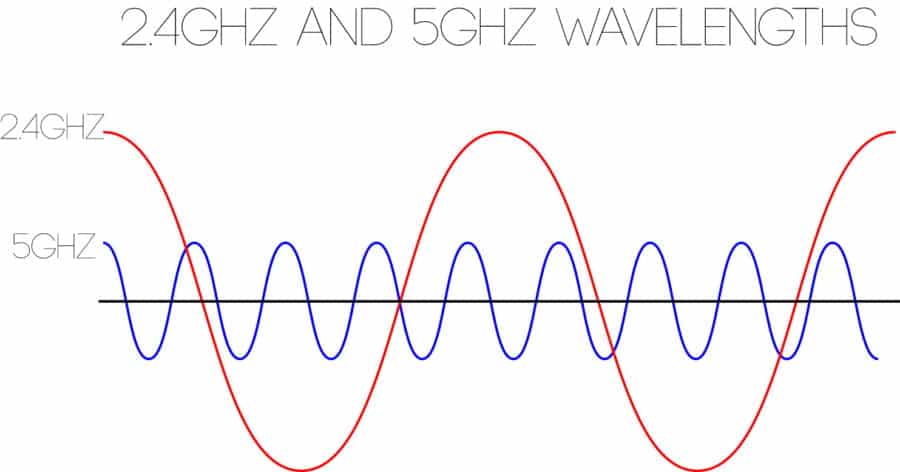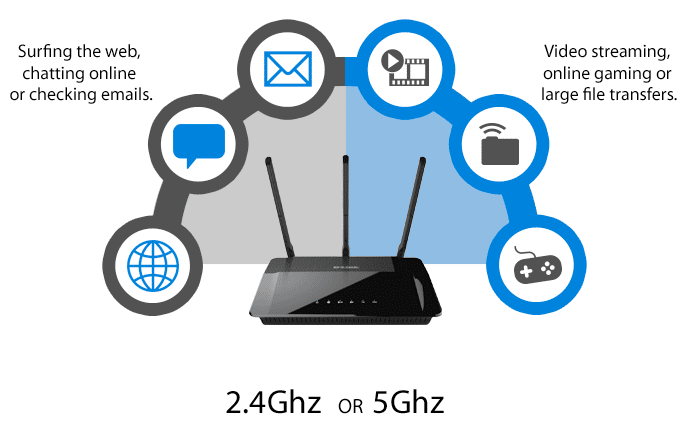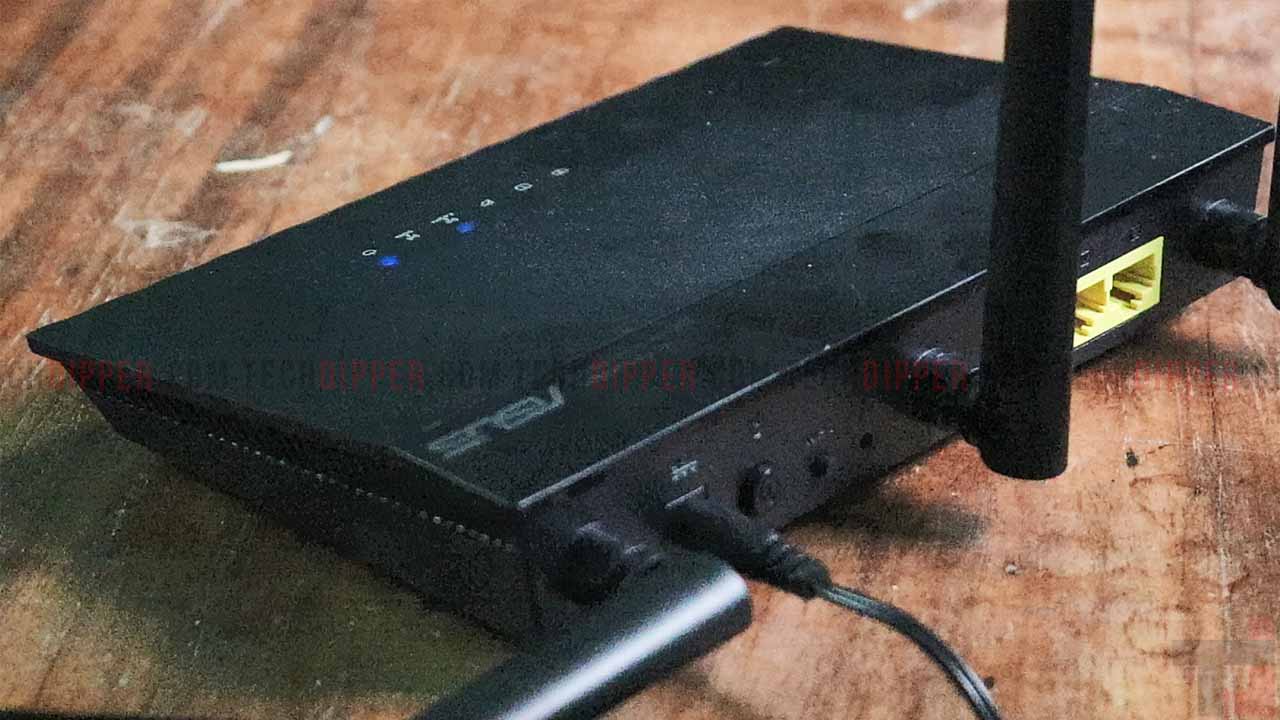There are many differences between a single-band and dual-band router, which include network speed, performance, compatibility, and pricing. Once you plug your network cable into a Wi-Fi router, the radio waves wirelessly transmit an Internet signal to your devices on one of two frequency bands. It is these different frequencies that separate a single-band router from a dual-band.
ALSO READ: ASUS RT-AC53 AC750 Dual Band WiFi Router Review: A Budget Hit!
Single-Band Router Vs Dual-Band Router
A single-band router is limited to, yes, you guessed it, just one frequency band— the 2.4 GHz frequency band (like ASUS RT-N18U, which we reviewed) to be exact. A single-band router operates on the 802.11n standard, also known as “Wireless-N”. Theoretically, the ‘N’ routers can throttle speeds up to 800 Mbps but in reality, the condition is totally different.

Coming to the dual-band router, it operates on two frequency band- 2.4 GHz and 5 GHz (like ASUS RT-AC53 AC750), on the newer 802.11ac standard. Theoretically, the dual-band router supports aggregate speeds up to 2,167 Mbps or more. The 5 GHz is fairly open and new, making for a faster, more stable connection, especially crucial if you live in a well-populated city or a big apartment building.
ALSO READ: ASUS ROG Phone 2: Everything You Need To Know Before Buying!
Some dual-band routers also pack perks that you won’t find on older models. Like for instance, many support MU-MIMO technology, which improves the way your Wi-Fi interacts with multiple devices. So, you can stream Netflix, while your friends are listening to some Spotify music.
Single-Band Router Vs Dual-Band Router: Performance
It is pretty evident that dual-band routers do better than the single-band router in terms of performance. Well, for the most part, both the single and the dual-band meet our different needs.

Single-band router has a shorter range and the signal strength is not strong enough. Whereas the dual-band router has longer range and better signal strength, and despite the broadcasting on two different bands, it is capable of switching automatically when needed. Due to its strong signal, the dual-band router is suitable for online high-resolution gaming, video streaming, and high-resolution audio.
ALSO READ: FaceApp’s Privacy Concerns: Everything You Need To Know About The Viral App!
Besides, if you’re already using 2.4 GHz router, you can improve the coverage area by adding a Wi-Fi extender to improve the signal strength. A dual-band extender will be more suitable since it can broadcast on two different bands.
Single-Band Router Vs Dual-Band Router: Pros And Cons

IMAGE: ASUS RT-AC53 AC750 (Dual-Band Router)
Dual-Band Pros;
- Twice the bandwidth of single-band routers.
- Modern secured hardware, better range, faster speed, flexibility, and stability.
- Compatible all the latest devices released.
- The wireless signal can reach up to 100x the wireless bandwidth.
Single-Band Cons;
- Doesn’t include modern features as you see in dual-band routers.
- Lower speeds than multi-band alternatives.
- Signal interference, which reduces WiFi speed and stability.

IMAGE: ASUS RT-N18U (Single-Band Router)
Single-Band Pros;
- Pricing is low, comparatively.
- Compatibility with almost all devices, as multi-band devices typically support 2.4 GHz connections (but not vice versa).
- Operates on lower frequency is better at penetrating obstacles such as walls, doors, etc.
Dual-Band Cons;
- 5 GHz has a shorter range than 2.4 GHz
- The 5 GHz band is getting populated slowly, which will likely bring in 2.4 GHz band like signal interference issues.
- Speeds are impacted by the number of devices connected.
ALSO READ: ASUS RT-N18U Router Review: An Elegant Piece Of Hardware!
Single-Band Router Vs Dual-Band Router: To Sum Up!
[table id=11 /]
Verdict
While choosing the right router, you need to take these factors into account, like your demand for network speed, application, compatibility, and the pricing, of course. So, if you are living in a small place and looking for a low-cost WiFi signal for daily routine, then you need to go for single-band router, however, we would still suggest you to for dual-band router for a future secure network.

On the flip side, if you live a metro city or densely populated place and want a stronger signal, then dual-band router is what you are looking for. You can customize the wireless network settings avoiding signal interference.
BONUS VIDEO
For the latest tech news, follow TechDipper on Twitter, Facebook, Google+, Instagram and subscribe to our YouTube channel.



